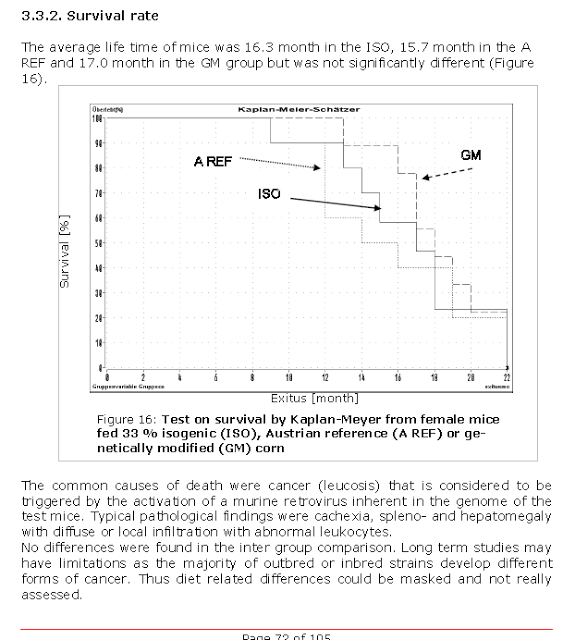

| Visitors Now: | |
| Total Visits: | |
| Total Stories: |

| Story Views | |
| Now: | |
| Last Hour: | |
| Last 24 Hours: | |
| Total: | |
Response to Séralini paper (October 2012) – Food Standards Australia New Zealand
Thursday, October 4, 2012 0:52
% of readers think this story is Fact. Add your two cents.
An interesting preliminary comment from FSANZ about the recent CRIIGEN report on GMO maize:
Response to Séralini paper on the long term toxicity of a Roundup herbicide and a Roundup-tolerant genetically modified maize
(October 2012)
In September 2012 Professor Gilles Eric Séralini and co-authors published a study suggesting laboratory rats fed genetically modified (GM) corn NK603 and/or Roundup (glyphosate) had a shortened life span, although apparently this was not proportional to the treatment dose.
The shortest lifespan was observed among rats consuming the lowest concentration of NK603 corn (11%) in the feed. The reduced lifespan was also associated with a high rate of tumours (cancer) in some of the test groups. The authors also reported adverse effects in the kidneys and disturbances in some plasma hormone levels.
FSANZ’s preliminary assessment
The relevance of the reported findings and conclusions drawn is limited because of a number of methodological and interpretive limitations.
Key limitations include the small number of animals in each test group, selective reporting of data, and no acknowledgement of the well-known spontaneous occurrence of mammary tumours in this strain of female rats.
The claimed toxicity of Roundup is implausible and doesn’t align with extensive data from well designed and conducted long-term studies that used the active ingredient of Roundup; glyphosate, in multiple species (i.e. mice, rats, rabbits and dogs) at higher doses where no effects were observed.
Although the authors claimed that the maize line NK603 had not previously been tested in a long-term feeding study in rodents, a long-term feeding study using mice was conducted in 2008 using transgenic maize (NK603xMON810). This study—Velimirov,et al, (2008)—was funded by the Austrian Government.
In contrast to Séralini et al. (2012), Velimirov,et al. applied appropriate statistical tests to similar sized test groups in order to conclude that “no differences were found in the inter group comparison”. They went on to state that “long term studies may have limitations as the majority of outbred or inbred strains develop different forms of cancer. Thus diet-related differences could be masked and not really assessed”.
Next steps
There is insufficient data in this published paper to enable a complete analysis. FSANZ will ask the authors to provide a copy of the original data for review. Once this data becomes available FSANZ will undertake a comprehensive analysis in order to determine if amendment to the current approval of NK603 maize is required.
More information
Velimirov,et al, 2008 (pdf 904kb)
@ Response to Séralini paper (October 2012) – Food Standards Australia New Zealand:
2012-10-04 00:44:01
Source: http://gmopundit.blogspot.com/2012/10/response-to-seralini-paper-october-2012.html
Source:



